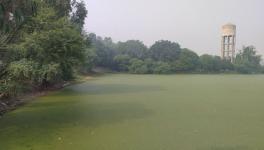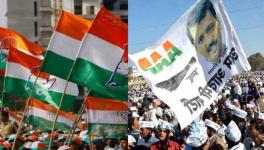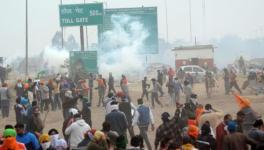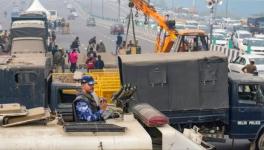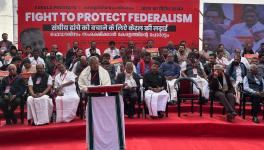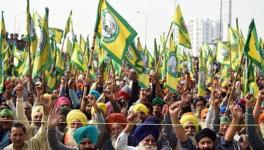Why Ending Corruption is Central to Punjab's Economic Development
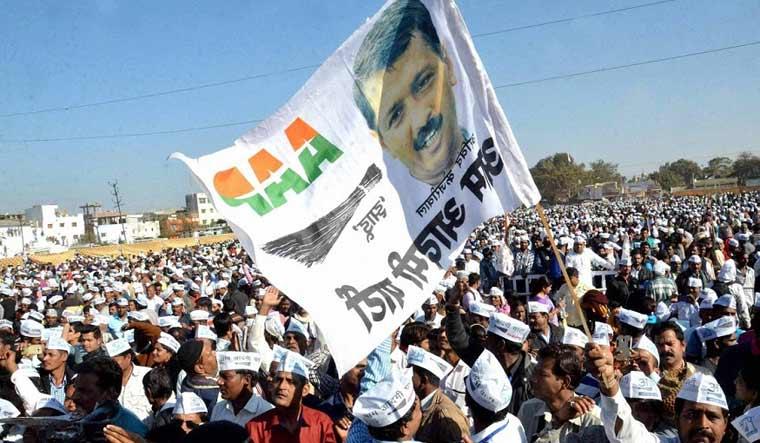
Representational Image. Image Courtesy: PTI
Punjab is one state where the people are economically better off than other states, but the government is financially poor. For three decades, no elected government did anything commendable to improve the situation, although parties and governments fed the people with all kinds of misinformation. The result has been the continuing economic decline of the state, with no effort from the ruling party to stall it.
We are now witnessing a new political dispensation in Punjab with a declared agenda to remove corrupt practices. The present government has just completed one month, and all political opposition parties that earlier ruled over Punjab are using their economic might and control over mass media to unabatedly find fault with the Aam Aadmi Party (AAP) government. Interestingly, people in all three regions of Punjab are conscious that the Bhagwant Mann-led government needs three to four months to get its act together to deliver its promises. However, the critics are impatient and want the government to immediately produce results without acknowledging that it takes time to implement the policies.
That said, eradicating corruption has to be at the core of turning the economy of Punjab towards recovery. The government can achieve nothing unless it brings the state back into financial health. Unlike most other states, the Punjab government has limited sources of income, as it does not have a solid industrial backbone nor an economic base. Among natural resources, it has water and, as a result, sand. The fisheries industry is limited to a few freshwater resources. Tourism is confined to a few places like Amritsar.
Agriculture is regarded as a primary source of livelihood, but only 40% of workers are either cultivators or workers, according to the 2011 Census. Among alternatives, the Punjab government could pinpoint the state's significant sources of revenue to specific sectors, such as state taxes on fuel, proceeds from auctions of liquor vends, taxes on the registrations of or transactions in rural and urban properties, including agricultural land, or taxes on public transport, etc.
Over the years, most of these sources of revenue declined in the state's collections, even when these sectors grew. The only plausible factual reason for this decline is corrupt and unethical practices among public servants and politicians, particularly those affiliated with the ruling party, the Congress or the Akalis. Let me explain how it has happened.
The best place to begin is from the corruption allowed to seep into auctions of liquor vends. Over the years, revenue collection from liquor sales has been increasing, reaching its highest in 2020-'21, about Rs. 6,000 crores. This rise was noticeable during the last five years. One may infer from this that all is well with the policy, and it would be true. However, what is forgotten is that the revenues collected could have been higher if the government had taken the necessary measures. For instance, for many years, politicians in confluence with the bureaucracy have manipulated the process of auctioning the vends. It began during the tenure of Captain Amarinder Singh as chief minister in 2002-07 when a liquor baron was brought from outside Punjab and handed control over the liquor trade. As the process continued, more and more vested interests joined this loot. It pushed many existing local liquor vendors out of business, and the total trade went into the hands of what are called syndicates, which divided up Punjab's regions among themselves.
The second significant source of revenue is public transport, and it presents a classic case of the ruination of a well organised state-owned system through corruption and vested interests. Even in the 1980s, most buses belonged to the government. A few private companies also plied buses on specific routes as decided by the permits the state government issued. The next decade was marked by the private ownership of bus routes when the Punjab government, to rehabilitate former Sikh militants, started issuing permits to link villages with neighbouring cities.
The decade of the nineties is marked by the end of terrorism and the beginning of the reconstruction of Punjab's ruined transport system. However, politicians in power used this opportunity to issue bus route permits to each other. No district of Punjab was left where a private monopoly over transport routes was not established. The Badal family dominated the public transport sector, holding the most significant chunk of route permits. Things did not change even when it was increasingly evident that the number of government-owned buses was falling, and most had started losing revenue.
On the other hand, private players had more buses than routes on which they were permitted to operate. With one permit, they would ply more than one bus, causing considerable revenue losses to the state. These private players would not even pay taxes to the government.
The third area, the most talked about, is sand mining. Since Punjab is rich in sand resources due to seasonal and perennial rivers, there is unlimited scope for mining sand. The Punjab government has regulated this enterprise by allotting mining sites to various contractors. However, with the connivance of politicians and bureaucrats, a sand mafia has emerged, which may resort to violent means if hush money does not silence everybody who questions them. A recent instance of the sand mafia working hand-in-glove with ruling political leaders and bureaucracy came to light when Enforcement Directorate officials raided the homes of the nephew of former chief minister Charanjit Singh Channi and recovered ten crore rupees in cash. In fact, if illegal mining is strictly and adequately regulated, it could solve many of the problems of Punjab's exchequer.
However, it is essential to keep in mind that all the people, in general, are not 'angels', and all politicians and civil servants are not 'devils'. Corruption begins from the top and percolates to the bottom. Some people would like to get their illegal work done and, in such cases, bribes are the most effective way to do so. Punjab's economic future lies in removing corruption, and it is an arduous task. We are yet to see if the AAP government is up to this task.
The author was a professor of sociology at Guru Nanak Dev University, Amritsar, and is a former president of the Indian Sociological Society. The views are personal.
Get the latest reports & analysis with people's perspective on Protests, movements & deep analytical videos, discussions of the current affairs in your Telegram app. Subscribe to NewsClick's Telegram channel & get Real-Time updates on stories, as they get published on our website.









